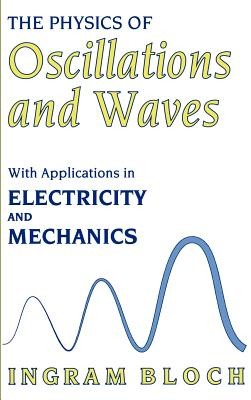
- We will send in 10–14 business days.
- Author: Ingram Bloch
- Publisher: Springer
- ISBN-10: 0306457210
- ISBN-13: 9780306457210
- Format: 15.7 x 23.4 x 2.9 cm, kieti viršeliai
- Language: English
- SAVE -10% with code: EXTRA
Reviews
Description
Except for digressions in Chapters 8 and 17, this book is a highly unified treatment of simple oscillations and waves. The phenomena treated are simple in that they are de- scribable by linear equations, almost all occur in one dimension, and the dependent variables are scalars instead of vectors or something else (such as electromagnetic waves) with geometric complications. The book omits such complicated cases in order to deal thoroughly with properties shared by all linear os- cillations and waves. The first seven chapters are a sequential treatment of electrical and mechanical oscillating systems, starting with the simplest and proceeding to systems of coupled oscillators subjected to ar- bitrary driving forces. Then, after a brief discussion of nonlinear oscillations in Chapter 8, the concept of normal modes of motion is introduced and used to show the relationship between os- cillations and waves. After Chapter 12, properties of waves are explored by whatever mathematical techniques are applicable. The book ends with a short discussion of three-dimensional vii viii Preface problems (in Chapter 16), and a study of a few aspects of non- linear waves (in Chapter 17).
EXTRA 10 % discount with code: EXTRA
The promotion ends in 23d.18:18:54
The discount code is valid when purchasing from 10 €. Discounts do not stack.
- Author: Ingram Bloch
- Publisher: Springer
- ISBN-10: 0306457210
- ISBN-13: 9780306457210
- Format: 15.7 x 23.4 x 2.9 cm, kieti viršeliai
- Language: English English
Except for digressions in Chapters 8 and 17, this book is a highly unified treatment of simple oscillations and waves. The phenomena treated are simple in that they are de- scribable by linear equations, almost all occur in one dimension, and the dependent variables are scalars instead of vectors or something else (such as electromagnetic waves) with geometric complications. The book omits such complicated cases in order to deal thoroughly with properties shared by all linear os- cillations and waves. The first seven chapters are a sequential treatment of electrical and mechanical oscillating systems, starting with the simplest and proceeding to systems of coupled oscillators subjected to ar- bitrary driving forces. Then, after a brief discussion of nonlinear oscillations in Chapter 8, the concept of normal modes of motion is introduced and used to show the relationship between os- cillations and waves. After Chapter 12, properties of waves are explored by whatever mathematical techniques are applicable. The book ends with a short discussion of three-dimensional vii viii Preface problems (in Chapter 16), and a study of a few aspects of non- linear waves (in Chapter 17).


Reviews